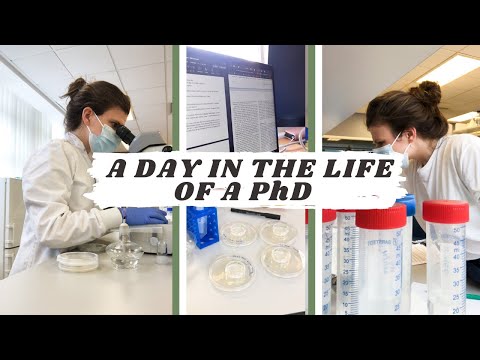Exciting Career: Biologist Job Description & Salary

Biologist Job Description Template
Biologist Job Description A biologist is a scientific professional who studies living organisms and their interactions with the environment. They play a crucial role in advancing our understanding of various biological processes and contribute to the development of new technologies and medical treatments. The responsibilities of a biologist may vary depending on their area of specialization. Some biologists focus on conducting research in laboratories, while others work in field settings, such as forests or oceans, to gather data and study organisms in their natural habitats. They may also be involved in designing and conducting experiments, collecting and analyzing data, and publishing their findings in scientific journals. One important aspect of a biologist’s job is to identify and classify different species, contributing to the field of taxonomy. By studying the characteristics and genetic makeup of organisms, biologists can determine their evolutionary relationships and create comprehensive classification systems. Another crucial role of biologists is to investigate the impact of human activities on the environment and develop strategies for conservation and sustainability. They assess the effects of pollution, habitat destruction, and climate change on ecosystems, and work towards finding solutions to mitigate these issues. In addition to conducting research, biologists often collaborate with other scientists, educators, and policymakers to communicate their findings and raise awareness about important biological issues. They may also be involved in teaching and mentoring students, both at the undergraduate and graduate levels. In conclusion, a biologist is a scientific professional who studies living organisms, conducts research, and contributes to our understanding of the natural world. By combining their knowledge and skills, biologists strive to make valuable contributions to various fields, including medicine, environmental conservation, and evolutionary biology.Biologist Responsibilities
Biologist Requirements
How Much Does A Biologist Make?
Biologist Salary
| Level | Experience | Salary |
|---|---|---|
| Entry-Level | 0-2 years | $40,000 – $50,000 |
| Mid-Level | 2-5 years | $50,000 – $70,000 |
| Senior-Level | 5+ years | $70,000 – $100,000 |
A biologist’s salary varies based on their level of experience. Entry-level biologists with 0-2 years of experience can expect to earn between $40,000 and $50,000 per year. Mid-level biologists with 2-5 years of experience typically earn between $50,000 and $70,000 annually. Senior-level biologists with 5 or more years of experience can earn between $70,000 and $100,000 per year. These salary ranges may vary depending on factors such as location, industry, and qualifications.
Biologist Salaries by Country
Top Paying Countries for Biologists
| Country | Average Salary (USD) |
|---|---|
| Switzerland | 120,000 |
| United States | 90,000 |
| Australia | 80,000 |
| Germany | 75,000 |
| Canada | 70,000 |
Biologists are highly sought-after professionals in many countries around the world. The table above showcases the top paying countries for biologists, based on the average salaries they offer. Switzerland stands out as the top-paying country, with an average salary of $120,000 USD. The United States follows closely with an average salary of $90,000 USD, while Australia, Germany, and Canada also offer competitive salaries ranging from $70,000 to $80,000 USD. These salaries reflect the high demand for biologists and the value placed on their expertise and contributions to various fields such as research, conservation, and healthcare.
A video on the topic Biologist
Video Source : ShelbyInterview Questions for Biologist
1. What is your educational background in biology?
I have a Bachelor’s degree in Biology and a Master’s degree in Molecular Biology.
2. What are your areas of expertise within biology?
My areas of expertise include genetics, cell biology, and microbiology.
3. Can you describe a research project you have worked on in the past?
During my Master’s program, I conducted research on the role of specific genes in the development of cancer cells. I used molecular techniques to manipulate gene expression and studied the effects on cell growth and division.
4. What laboratory techniques are you proficient in?
I am proficient in techniques such as PCR, gel electrophoresis, DNA sequencing, cell culture, and microscopy.
5. Have you published any research papers in the field of biology?
Yes, I have co-authored two research papers that were published in reputable scientific journals.
6. How do you stay updated on the latest advancements in biology?
I regularly attend scientific conferences and workshops to learn about the latest research findings. I also subscribe to scientific journals and participate in online forums and discussion groups.
7. Can you describe a challenging situation you have faced in your research and how you resolved it?
During my research project, I encountered difficulties in obtaining consistent results. I carefully reviewed my experimental procedures and identified a potential source of error. I made necessary adjustments to my protocols and repeated the experiments, leading to more reliable results.
8. Have you collaborated with other scientists or research teams? How did you contribute to the collaboration?
Yes, I have collaborated with other scientists on a few occasions. In one collaboration, I contributed my expertise in molecular biology techniques to a project focused on studying the effects of environmental pollutants on gene expression in plants.
9. How do you approach the ethical considerations in your research?
I always prioritize the ethical considerations in my research. I ensure that my experiments are conducted in accordance with ethical guidelines and regulations. I also obtain necessary approvals from ethical review boards before conducting any research involving human or animal subjects.
10. What are your career goals as a biologist?
My career goal is to contribute to the advancement of scientific knowledge in the field of biology through conducting innovative research and publishing impactful research papers. I also aspire to mentor and educate future generations of biologists through teaching and supervision roles.






